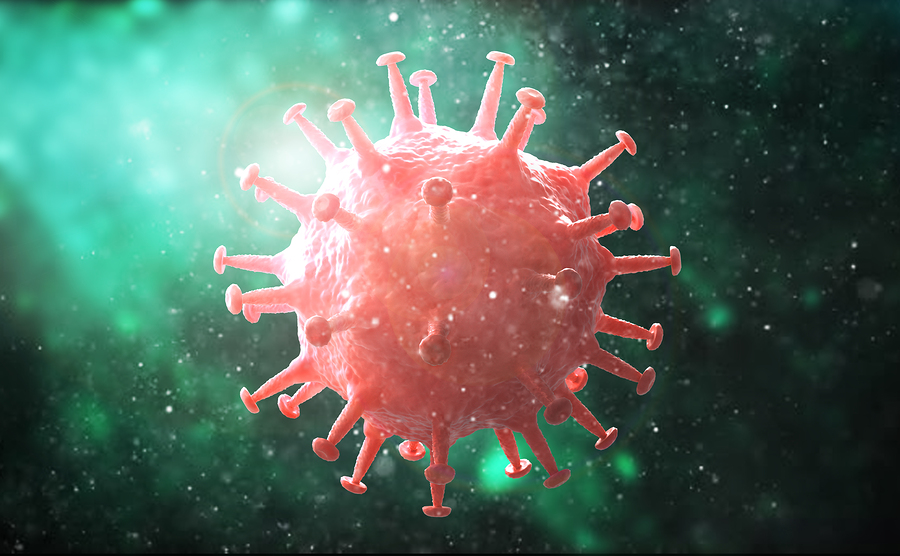In the age where misinformation can so easily be promulgated via Facebook, Twitter or any number of other social media platforms, we have taken the opportunity to set some facts straight and write a bit about the corona virus.
The coronavirus comes from a large family of viruses. It is a type of influenza or SARS (severe acute respiratory syndrome). Low level symptoms include a common cold, however more dangerous results can result with severe respiratory problems. In China, cases of at least 82 deaths and multiple other infections have already been recorded.
As the Coronavirus is from a new strand, it does not match other known viruses. As such, we cannot be entirely certain about how it affects people either. In any case, if you happen to experience flu like symptoms, isolate yourself and contact health care professionals. Some companies such as RUPharma.com are selling Arbidol that is used to treat and prevent influenza.
Because Coronavirus is a viral infection, antibiotics which slow and destroy the growth of bacteria, cannot be used. Antibiotics only work on bacterial infections. As such, protecting yourself is very important. The old adage “prevention is the best medicine” resounds so clearly in this case.
It is believed that the virus itself originated in Wuhan where many cases of the disease outbreak occurred. Reports suggest that the virus started within Wuhan’s seafood and animal market. It has since been closed and fumigated given safety concerns. Currently, the city remains in lock down with residents trapped while China quarantines. Those who contracted the disease in other countries, often had ties back to China.
In response, countries from all around the world are closely monitoring the situation, particularly in airports where rigorous screenings are taking place in response to the outbreak. Beyond China, cases have been confirmed in America, Canada, Australia, Japan, South Korea, Taiwan, Thailand, Vietnam, Hong Kong and more.
Health officials are encouraging those to avoid unnecessary travel back to China. However following recent Chinese New Year celebrations, we are yet to see additional flow-on’s and see what ramifications have developed.
Infections can spread quickly so it is important to be prepared and take necessary precautions. Preventative measures can be undertaken similar to that of high flu season. Wash your hands with soap and warm water for at least 20 seconds, thoroughly scrubbing all areas of your hands. This includes the palms, both front and back, and between the fingers. Additionally, hand sanitiser can be used. Regularly washing your hands will help protect you. As such, disinfect household items and other objects you may regularly use. This will also help to avoid any infections.
Avoid touching your eyes, nose or mouth. This spreads diseases to open areas of your body where you are more susceptible to infection. Whenever you cough or sneeze, cover your mouth and nose. Safely dispose of tissues and so forth as soon as possible. Wash your hand thoroughly straight after as soon as possible.
Avoid sick people. Avoiding close contact with anyone who has a fever or cough will be another preventative precaution.
Should you develop any symptoms, such as a fever, cough or have difficulty breathing, seek specialised medical care immediately. Isolating yourself and placing yourself in quarantine for at least two weeks may seem extreme, but that is exactly what some Australian private schools have done.
Avoid unnecessary travel. Public transport such as trains or buses can be a breading ground for disease. Travelling back to Hubei province where the virus originated is obviously asking for trouble. Minimise the personal contact you have with others as much as possible, avoiding those who exhibit symptoms.
Just as food and animals can catch disease, they can also transmit them too. You should never eat sick animals or animals that have died from disease. Avoid contact with live animals during such outbreaks. All meat products should be thoroughly cooked and properly handled. Proper food safety practise dictates that different chopping boards and knives be used for raw meats and cooked foods. Additionally, you should wash your hands after handling any raw and cooked produce.
Disease spreads more easily in wet environments. Be conscious about your working environment and disinfect surfaces when and where possible. Other practical considerations may include removing wet clothing after work or separating work clothes from home. In all aspects, use common knowledge to practice basic hygiene principles.
Australian GPs have been advised to wear face masks when meeting suspected patients. As such, it wouldn’t be a bad idea if you decided to wear one too. Despite such suggestions, reports have also indicated that surgical masks are not as effective as you’d typically think. Some websites started selling anti virus masks like this one.
Surgical masks are used by surgeons to protect their patients from mouth-bourn germs. These masks are normally worn loosely around the mouth with gaps between the cheeks and edges of the mouth where air can still easily leak in. In short, it may limit your exposure, but it does not fully protect you from this air-borne virus. Isolation, as much as possible, such as avoiding large gatherings will largely do that.
To best protect yourself, N95 respirators or similar masks are most effective preventing most of the small particles from entering the nose or mouth area. However N95 respirators also make it harder for users to breath and long sustained use may be a challenge.

